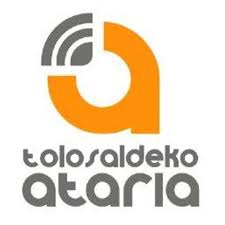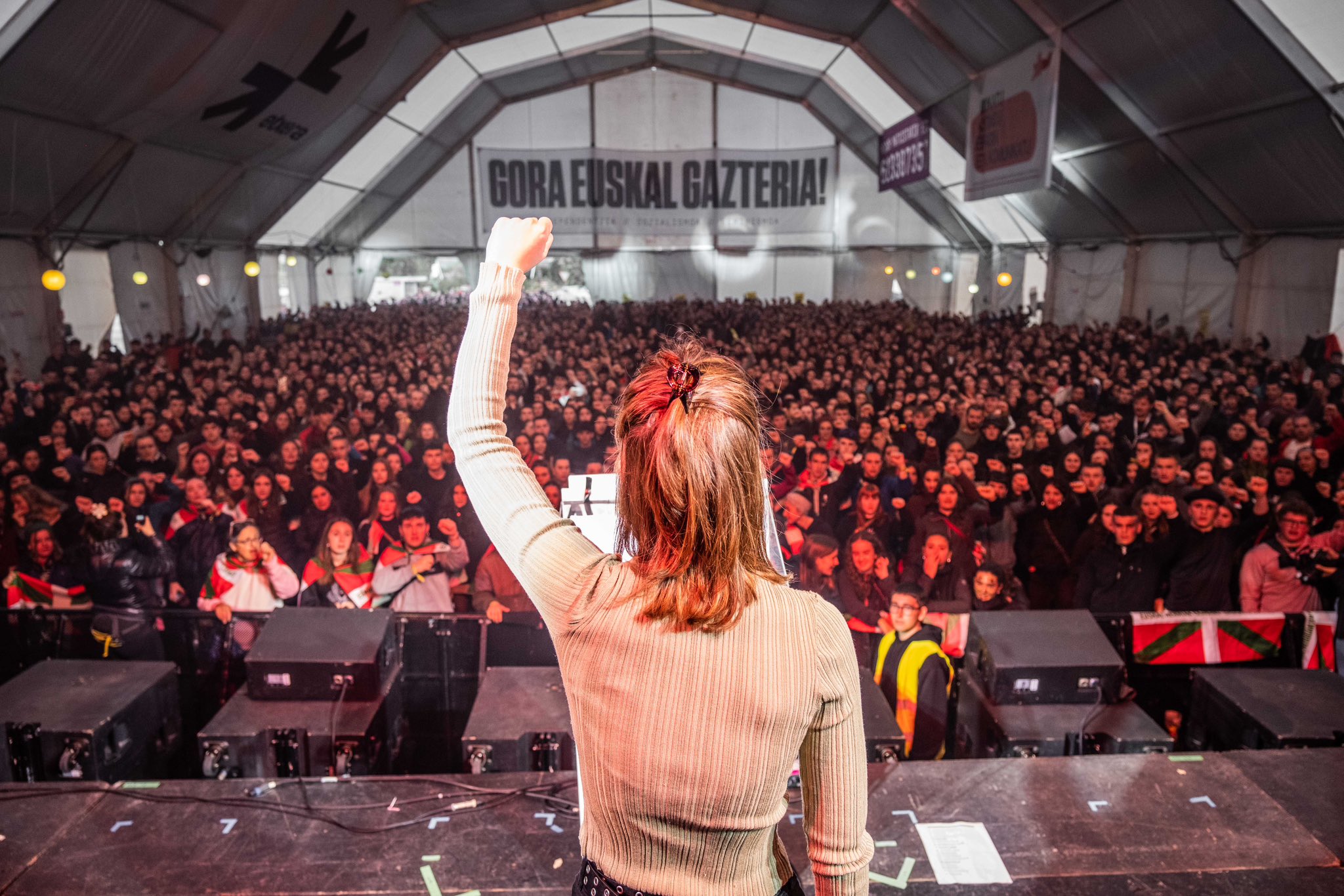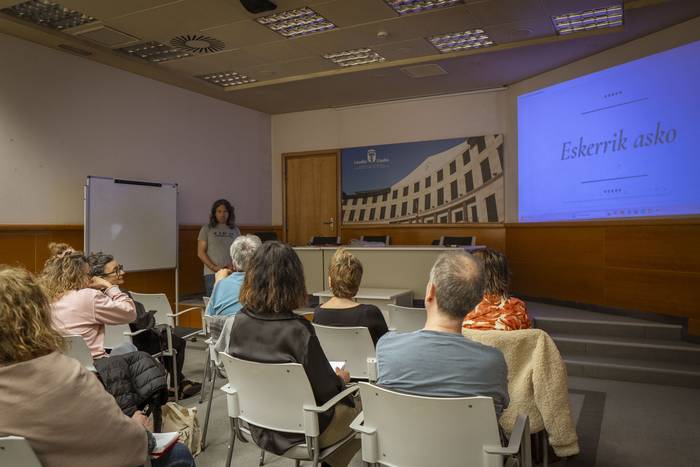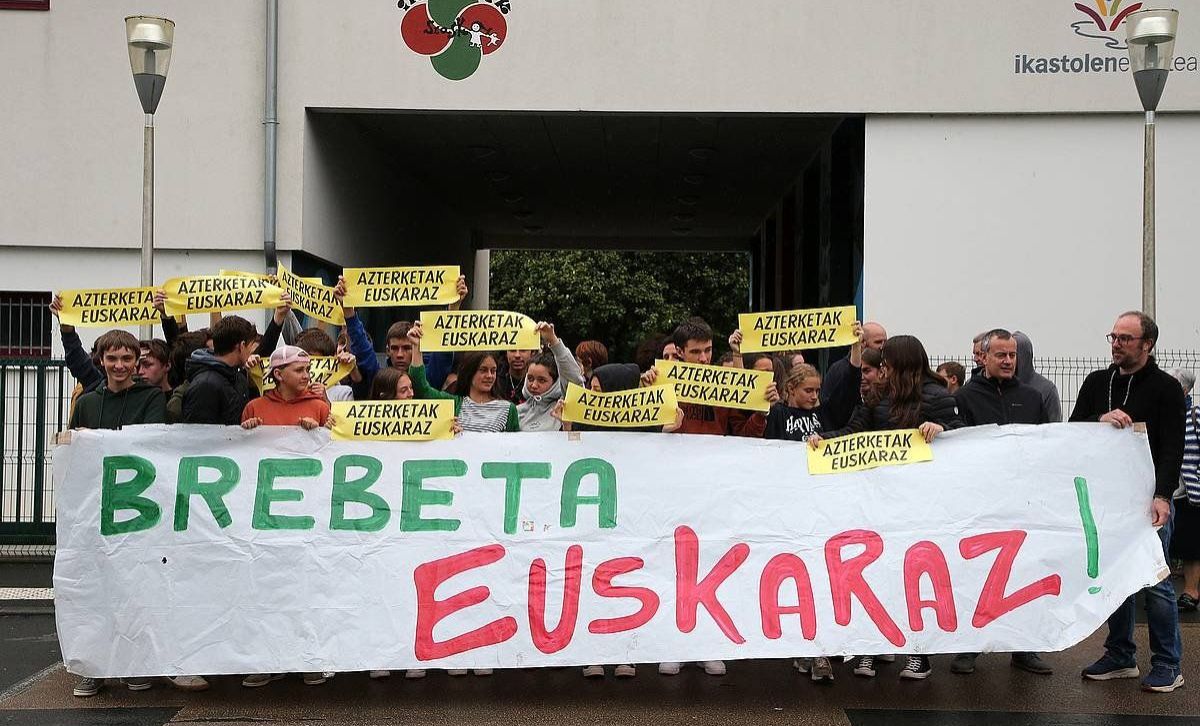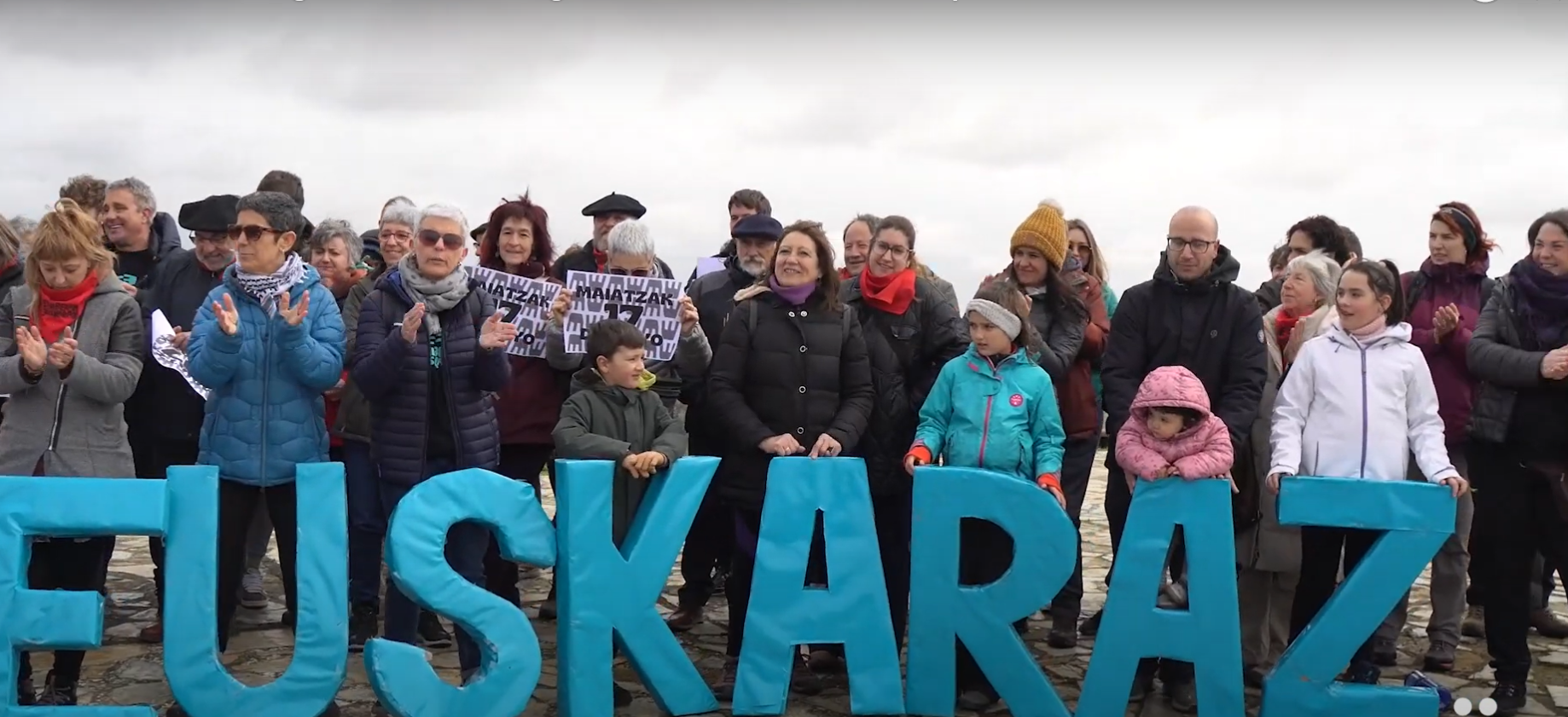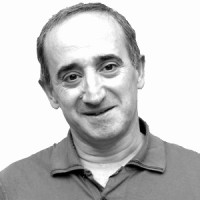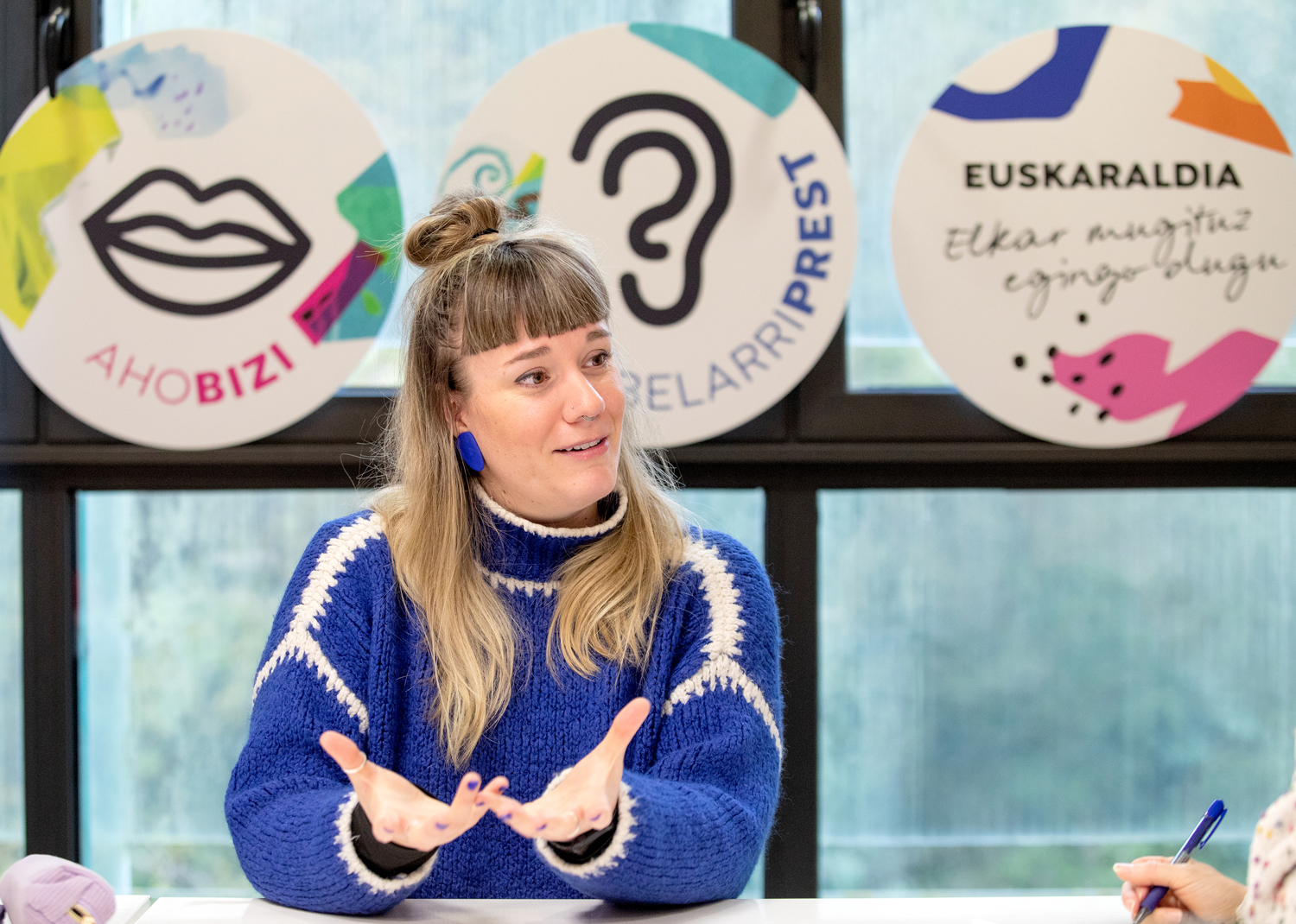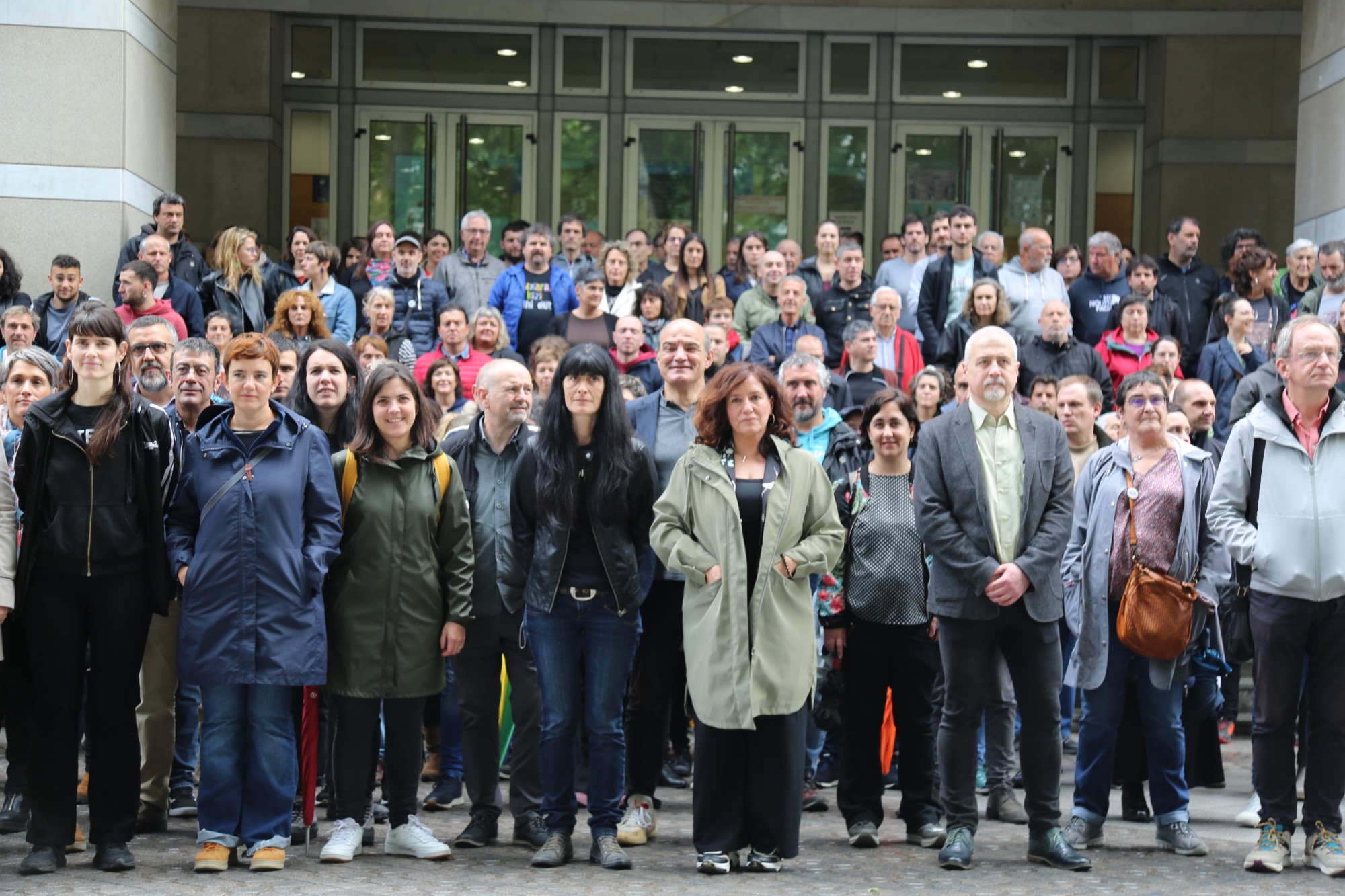"The national school wasn't right, I needed Euskaldunes teachers."
- The public school has worked in Euskaldunization and in the application of a modern methodology in the struggle for model D. At a time when the political situation was at its peak, for some it revolutionized the school that still stalled Franco and laid the first stones at the base of the Basque Public School we know today.

Yours has been the ant job. Behind them, he always preferred silenciosamente.Ha open to the portal the doors of his house and, with a review of his trajectory, he has surprised himself: ‘How many things I did,’ he said many times. He has been and is a professor, promoter, Euskaltzale, rabid reader, collaborator of Bittor Madina (Oñati, 1944).
He showed Berrobt's students that the world could be understood in Basque and gave color to the teaching system that was gray. He understood the world with left-wing ideas, as well as education, he opted for a progressive, inclusive, Euskaldun pedagogy free above the scrubland and below the clouds. He has had his residence since the teaching went to her, but his roots are in Oñati. Accompanied by former students and their children, after having quiet conversations with the men of the forest, he shares with his friends the literary recommendations. The former master of Bermere is a silent delight that has the gift of putting himself in the fight and listening to everyone to have nice conversations. On a daily basis, he has the pleasure of reading and walking through the village listening to the songs of the birds on the river bank. The writer Seneca described it as in paradise.
How do you remember that young Bittor who came to Berrobing in 1978?
I came to Bermere with enthusiasm and desire. Ready for what you can! He had previously worked four years in Oñati and one year in Vitoria in the national Spanish schools. He was 33 years old and previously, together with several colleagues from the ikastolas, we dedicated ourselves to enriching and reinforcing the education of the teachers. We did a course at the Rosa Sensat school in Barcelona, with a progressive pedagogy and a modern ideology, and for me it was a great lesson that I received there. I dressed as a professor. It had not yet died and politics was on the verge, there we met many teachers, all eager to change the education system.
But it wasn't the only course you did, right?
Of course not! As I worked in national schools, my mindset spread with innovative ideas. Meanwhile, I had many friends teachers and we wanted to know new pedagogy and methodologies, as we have already said, many were the ones we wanted to change the national schools inside. Celestin Freinet’s pedagogy was innovative to us, it was the driving force of modern and secular school. For us, the book Parabolak for a popular pedagogy was sacred, had worked in a small school and proposed a pedagogy contrary to what had been done until then in state schools: cultivating children's desires, performing outdoor activities in nature, working communication between the teacher and the student. We also drank from Paolo Freire's pedagogy.
We are talking about the 1970s, when the Ikastolas were broadcast.
When the Basque faculty from the national schools began to learn and learn progressive methodologies, these methodologies were applied in the ikastolas. Very good people entered the Ikastolas and the Ikastolas laid the first foundations of Euskera in modern education.
The dream of Euskaldunizar national schools was work, struggle, reality.
At that time, are you the master of the “national schools”, having the ikastola there?” they asked us. I answered: “Is it not the Basque people who are learning there and who have to learn Spanish?” It was times of great tension, because of the way we had to see the extension of education. But that's all over. After Franco's death came into public school very good people and now you only have to see that the work we started served. In model D there seem to be more students than in ikastolas and private schools. Our public school is Euskaldun, free of charge, of Euskaldun and secular ideology.
Were they years of militancy?
I don't like the word militancy very much. We were faced with a necessary and urgent work, the material and didactic deficit was evident and there is nothing like the need to organize and solve it. How many meetings! How many meetings! We enter many hours out of school, even on the July vacation. We created teaching materials for the teachers and students of the schools nacionales.El result were easy books, we spread them to all schools. Fortunately, over the years, Ais completed her work by implementing model D.
The goal was to make the Basque attractive.
The students who did not know Euskera were steps to learn Euskera; we collected songs, stories, games, poetry, verses… in the Aise books. For students to learn Basque and teachers to teach it in an attractive way. We wanted the Basque and the Basque to give a playful environment. The objective of this didactic material were the students who only knew Spanish and that later the school was Basque and modern as a center and not a ghetto, we had it very clear. The aim was to phase out model A, to strengthen model D and to have a single chance in the future. For all the children of the Basque Country, despite being of different realities, to learn at the same time in Basque. Because, ultimately, the future Basque Country Herritarrdiversity of Euskaldun would become a more prosperous society and we would all have the Basque society in common.
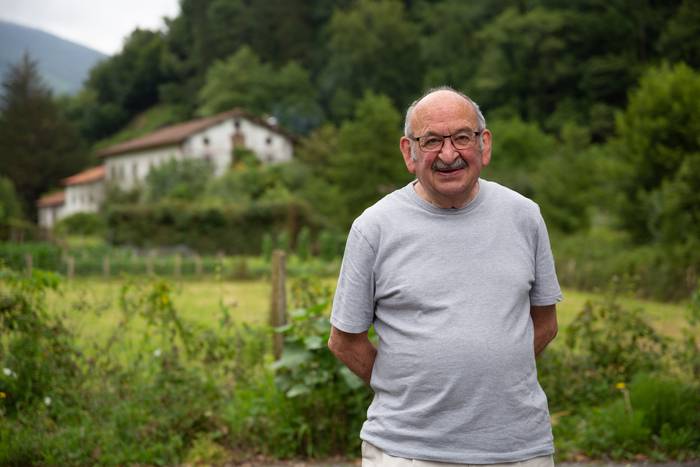
Could they have been non-Basque teachers?
Of course most! You also had to alphabetize them in Basque. Some did so with total will, others out of necessity, but the faculty needed an Euskaldun. While the latter were euskaldunizan, the figures known as aragaracarus entered the schools. People who did not have the title of teacher, but who taught Basque.
In addition to modernizing and Euskaldunizing the public education system, she also worked as an activist. There is nothing else to take a look at the newspaper library of the 1980s. Was awareness-raising essential?
Our friend Xabier Arruti and I wrote some articles about the problem, they were published in Egin, La Voz, Argia… In the press we wanted our site, the Public School did not have an echo in the media, what the Ikastolas did, information about the festivities of Kilometroak… but we did not even mention ours. On the part of the leftist politicians we also had little support. We struggled to receive official and public support from the Abertzale left. We wanted to raise awareness when publishing these articles, it was necessary to show our work to society.
You had to put Berick on the map and you got to lead a school with a lot of shortages.
I came in a Citroen CV2, in 1978, without knowing where the small town of Berrobby was, I only knew Tolosa. It was September 29, I remember well, it was the Oñati holidays, and the worst of the shortcomings is that I arrived at a school without teachers. The Lion's Miss who until then had in school wasn't there. The students had been out of class for almost a month, spending time in the street, and the school was closed.
Did you receive the support of your parents?
I began to meet them, I explained the situation to them and explained the importance of the presence of the teaching staff who knew Euskera at the weekly meetings we held. In Berrobing's school, there were also students who, on the one hand, had no sign of Euskera and at home and on the street, only spoke Basque and Spanish in the school. Two very different linguistic realities. I was also in favour of those monolingual parents wanting to Euskaldunify their children. He was asking them to be patient until they got more Euskaldunes teachers. The choice of teachers was made in Martutene and they did not send anyone to Berrobing. Professor Ione Imaz was a friend of mine, meeting me in the assemblies and wondering if I wanted to come to Berrícia gave me her assent, as well as her friend Sebas Herrero, who did not know Euskera. The calendar was held on 23 October when we opened the doors of Berrobby School to the students and to the Basque Country. We were moving towards model D.
And the oñatiarra Bittor Madina, with long hair and pasta with glasses, is a professor at Berbob. At the time, your innovative esthetics, Berick began to revolutionize the educational model along with that group of professors: bertsolarism, stories, sexuality, theatre, songs and reading in Basque…
As the director of the small school in Berick, with a very good team, we tried to make education and Euskera more attractive. I really like Bertsolarism and with the students we worked the Bertsos, we learned the old Bertsos, the songs in Basque, we gave them the values of the Basque culture.
In sexuality classes, for example, we use a comic book translated from Catalan. I taught it to my parents, who had fears. There's no fear when you teach the book and you see it was a comic book. I have to admit that in some villages, some fathers and mothers were afraid to deal with some issues and it has been seen that over time they were necessary, the issues have been naturalized.
Were the shortcomings of the Small Schools overemphasized?
In general, that happened with the public school, and what to say if it was a small school, although there were shortcomings. At the time when the Basque Country had to implement itself in education, some parents asked themselves or us: “But what are they going to learn in Basque?” The fear that hidden this question disappeared, creating instruments and resources to understand and learn the world in Basque. In the case of Berrobs' parents, at first they were afraid that boys and girls would arrive with a good level of education when they went to Tolosa's schools. He wondered if they would be on par with those who had studied in major schools. The practice showed that they had a good level and that we were doing things right in small schools. Our first student who came to college was Ramon Olasagasti, when I got to Berrobit was a seven- or eight-year-old boy.
And also a lot of positive values in small schools, right?
In small schools, the levels were different, as the necessary spaces and specialized teachers were also scarce. Now in some places, students of different ages mix voluntarily, because it's pedagogically good. Life itself is cyclical. Some people think that what they used to see wrong now is very good. We're all learning little by little. The relationship with parents and families is very close and close to the rural environment for excursions. Today they only have advantages everywhere.
Among these values, is not the work of the professors who wanted to strengthen the Eskola Txikiak?
The collaboration between the Eskola Txikiak faculty was very intense. I remember that one year, once a week, we met at the Urkola bar of Berbob to eat, a dozen professors from Eskola Txikiak in the district: sharing concerns, material, projects, problems, ways of working… wanting to offer quality education.
Villages with Eskola Txikiak alive.
No doubt. There is nothing more to do with small towns where small schools have been closed. Schools are an important social and cultural core of the people. In 1988 we celebrated the Eskola Txikiak festival in Bidania for the first time. We wanted to say aloud to society that we were there and that we also had needs. On the other hand, it also means working on the relationship between children in small schools and also being interested in them. From an age, leave the warm nest of the village school and join us again in the schools of Tolosa, Alegia or Villabona.
With 26 years of teaching at Berrobing's school, how many sweet and savory experiences have you accumulated?
There have been many experiences, many reflections that have generated me over the years. They've all taught me something well done and wrong done. But I'm not going to make the mistakes. I know that thanks to them too I have changed. In recent years, I have been offered a favor and I have been happier. I have all the moments saved on the heart's soft drive, and all those memories are magical gifts that never run out.
He stopped working as a professor and went back to working as an entrepreneur, creating and spinning letters in Euskera. Can't the creator and thinker inside rest?
The meaning or weight of the word "retreat" is hard for me, I don't like it. In 2004, I stopped being a professor and I was asked to work at Tolosaldeko Hitza, and it was an exercise for me to work and create stories that would lead me to reflect on many things in a few letters. From the Council of Oñati I also write my ideas and reflections in the municipal journal. I am a co-founder and collaborator of the Berrobiberri yearbook at Bermere. It has been almost 22 years since I proposed to a group of friends, most of them former students, to make a popular journal, taking the Altzo model. We collect stories, testimonies, events, passages from the people and give them time to read them in Basque.
Do people know that poems, sayings, phrases or phrases in the calendar are chosen with mime? Are these words that lead to reflection, droplets of letters to change the world?
The pearls collected in the literature books are the poetry and the accounts of the calendars of recent years. I read a lot of literature and I point to poetry, phrases -- that I like. I choose the jobs with a lot of affection and care. The phrases in the calendar lead to reflection, but I would not say that they change the world, but that they make life understood and enjoyed. Reading brings me pleasure and wealth, it's like feeding me. I've discovered a lot of other thoughts, I've opened my head, I've thrown myself into reflection. Books are good friends of mine.
He also made his contribution to Euskera in the literature.
In 1985, the editorial Baroja gave me the opportunity to translate the book Alegiak de León Tolstoi into Basque. I liked the Russian writer and I am also attracted to short stories, which have a lot of teaching in few letters. I worked gladly, and in school, I read the stories to the students.
Your students tell you now that you encouraged them to read. Journalist Ramón Olasagasti acknowledged this in this newspaper…
It's a joy to hear it from your former students. I have been able to convey to some what I do with passion and it is to thank them. Reading fondness is a rich value. Séneca said: “It is ungrateful, which limits gratitude to silence.” And on the other hand, I thank you very much for telling me that.
What would Bittor Madina be without Euskera?
Bittor without Euskera? Well, it would be Madina or Medina, which is Arabic! [Laughing]. My last name comes from the East. Think of the rich culture and literature there!
Antton Kurutxarri, Euskararen Erakunde Publikoko presidente ordearen hitzetan, Jean Marc Huart Bordeleko Akademiako errektore berriak euskararen gaia "ondo menderatzen du"
You may not know who Donald Berwick is, or why I mention him in the title of the article. The same is true, it is evident, for most of those who are participating in the current Health Pact. They don’t know what Berwick’s Triple Objective is, much less the Quadruple... [+]
Is it important to use a language correctly? To what extent is it so necessary to master grammar or to have a broad vocabulary? I’ve always heard the importance of language, but after thinking about it, I came to a conclusion. Thinking often involves this; reaching some... [+]
Adolescents and young people, throughout their academic career, will receive guidance on everything and the profession for studies that will help them more than once. They should be offered guidance, as they are often full of doubts whenever they need to make important... [+]
Maiatzaren 17an Erriberako lehenengo Euskararen Eguna eginen da Arguedasen, sortu berri den eta eskualdeko hamaika elkarte eta eragile biltzen dituen Erriberan Euskaraz sareak antolatuta
Ansorena´tar Joseba Eneko.
Edonori orto zer den galdetuz gero, goizaldea erantzungo, D´Artagnanen mosketero laguna edo ipurtzuloa, agian. Baina orto- aurrizkiak zuzen adierazten du eta maiz erabiltzen dugu: ortodoxia, ortopedia, ortodontzia... Orduan (datorrena... [+]
We have had to endure another attack on our language by the Department of Education of the Government of Navarre; we have been forced to make an anti-Basque change in the PAI program. In recent years, by law, new Model D schools have had to introduce the PAI program and have had... [+]
"Ask for your turn and we'll join you," the willing and cheerful announcer who speaks from the studios tells the young correspondent who walks through the streets of Bilbao. The presenter immediately addressed the audience. "In the meantime, we are going to Pamplona..." They opened... [+]



